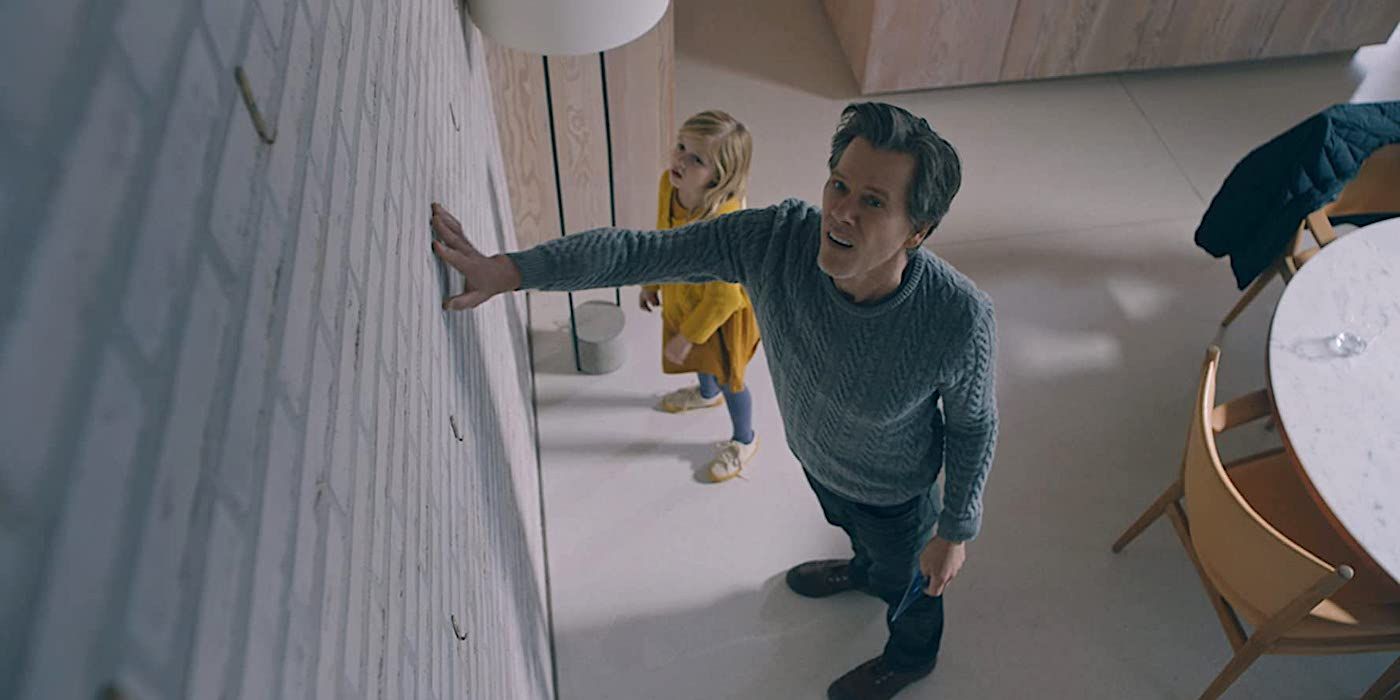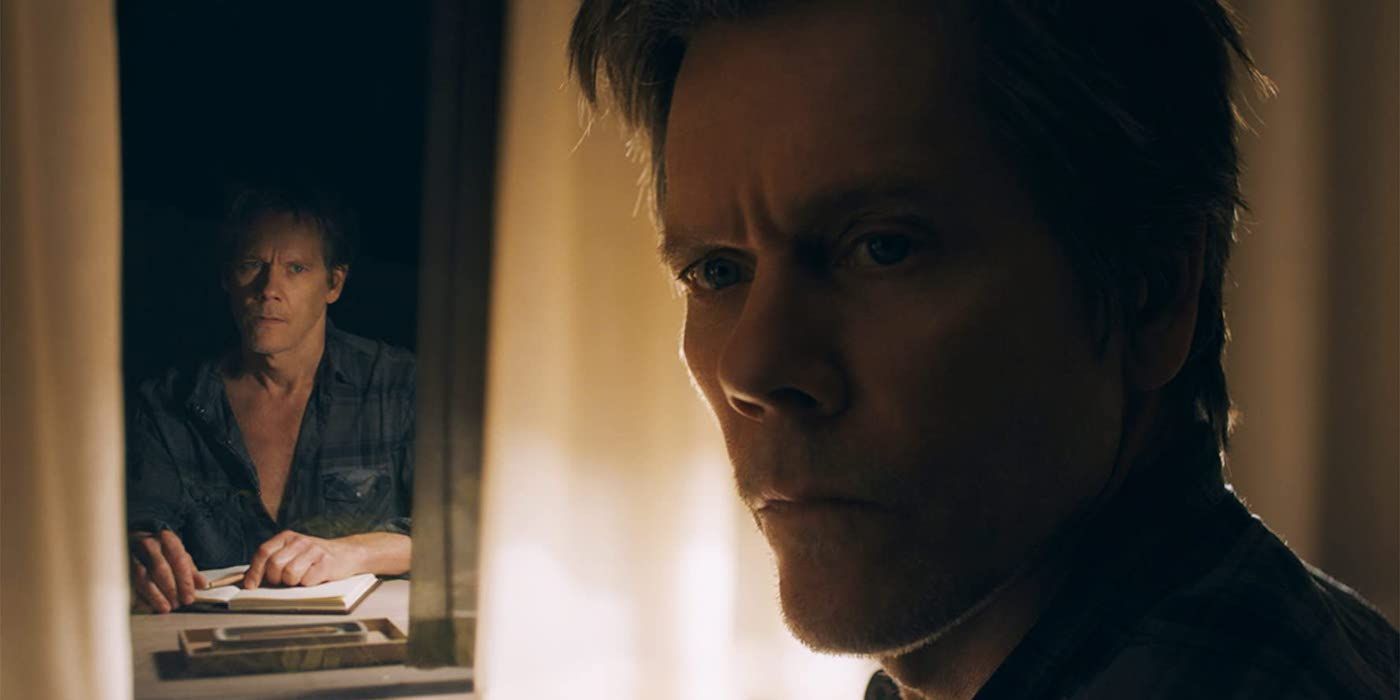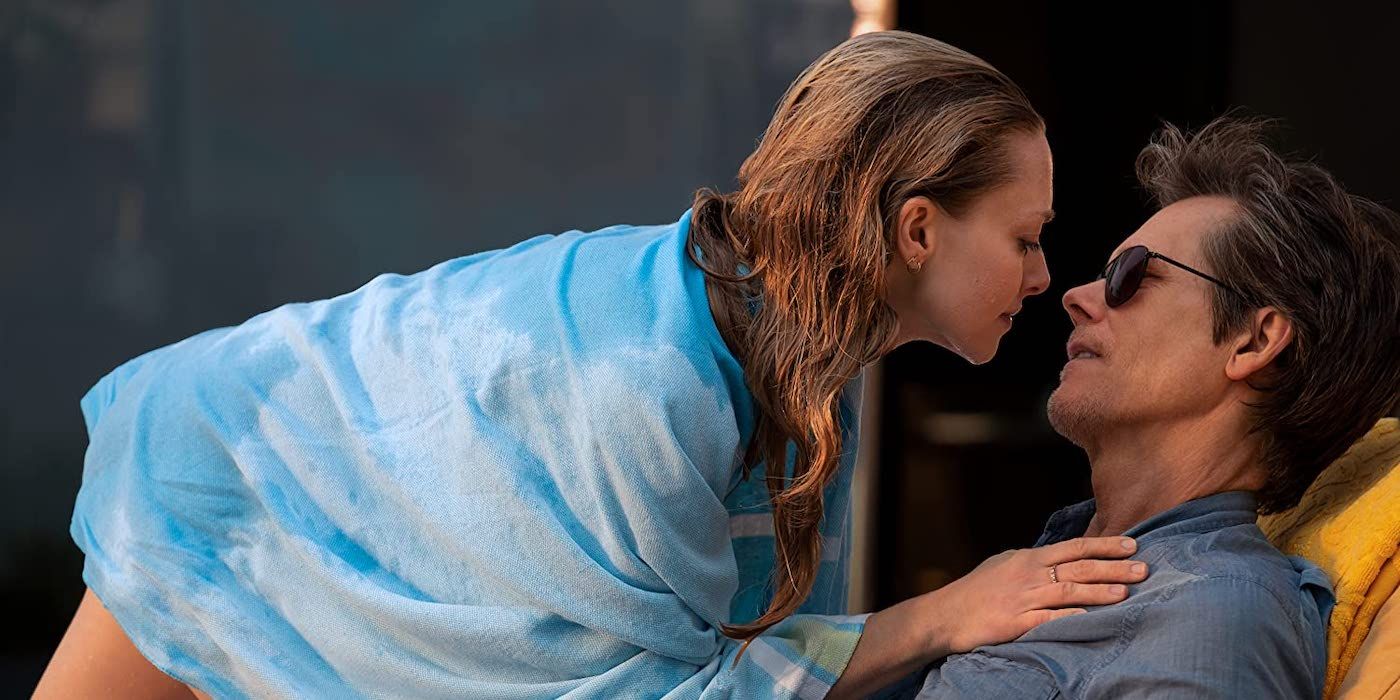WARNING: This article contains major spoilers for You Should Have Left, available now on VOD.
Blumhouse's latest horror film You Should Have Left was recently released directly to VOD. The story follows Theo, played by the iconic Kevin Bacon, his wife Susanna, played by Amanda Seyfried, and their young daughter Ella, played by newcomer Avery Essex, to a remote, yet stylishly modern, vacation house in the Welsh countryside on a family vacation where things go wrong.
The house is infamous among the villagers who live down the hill in a tiny Welsh village, and they warn Theo that there is something wrong with the house. They believe the land the house is built on used to be the location of a tower built by the Devil himself to trap souls before it was destroyed by God. Ever since, houses have continued to populate that land and draw in vacationers, some of whom never leave. A local shopkeeper tells Theo that the right people find the house, but postures that perhaps it is actually the house that finds the right people.
Susanna is Theo's second wife as his first wife drowned in a bathtub at their home. Theo was charged and put on trial for her death but was ultimately found not guilty and released a free man by the justice system. However, at the film's conclusion, Theo reveals to Susanna that he is indeed responsible for his first wife's death. He stood by and watched as she accidentally drowned in the tub, his inaction resulted in her death. It is a fact that has tortured him and riddled his subconscious with terrible guilt ever since.
The house, and the proprietor, Stetler (also played by Bacon), are aware of the guilt deep within Theo and exploit his fears and anxieties of failing his current family, mainly his young daughter, to torture him. So if the legends of the town are to be believed, Stetler is the Devil, or at least a devil, who lures in people with extreme guilt and keeps them prisoners to claim their souls for hell. The house works as both a beacon and a prison for those with a guilty conscience.
It's an interesting concept because it implies that for the Devil to catch a guilty person, that person must believe themselves to truly be guilty, regardless of any other factors. The Devil goes by different rules than the justice system. The house has adapted overtime in its methods of luring guilty souls into its midst, showing that the Devil must have adapted to modern times. Theo and Susanna receive emails regarding the house rental seemingly from each other, though neither of them sent those emails. After Susanna takes Ella away, leaving Theo alone at the house, the online listing for the house registers as "available" once again, on the prowl for the next guilty soul to lure into its depths.
The mind-bending twists and the ever-changing layout of the house are symbolic of self-conscience. It contains contradictions, irregularities and deeply rooted fears that represent the complicated nature of Theo and the repressed guilt he feels over the death of his first wife. The house serves not only as a torture chamber, but a metaphor for the complex layers that lay within a person. Stetler, the apparent owner of the property, takes the form of Theo, though initially a much uglier, aged version. He represents the darker side within Theo, the part of himself that could watch a woman drown to death and do nothing.
Theo stays behind in the house and allows his soul to be taken by the devil in order to free his beloved daughter from the house's clutches. It is Theo's deeply held guilt that makes him a victim of the house and Stetler. Susanna is also guilty of sin. She has been engaged in an affair with a man named Max. However, she is free from the house because she does not feel the same level of guilt the permeates throughout her entire identity. She feels bad that she hurt Theo, and disrupted their family, but she does not believe herself condemned or unforgivable as Theo sees himself. This is the key factor in the house's ability to trap and torture its victims, a person's self-deprecating and condemning guilt.
Perhaps if Theo had been able to forgive himself for his past crimes, or if he had simply divorced his first wife instead of letting her drown, he would never have been targeted by the house. Instead, he held onto his guilt and pain and made himself a vulnerable to be taken by the Devil and his house. You Should Have Left is a story of guilt and pain, and the subconscious ability to manipulate that pain as a source of eternal suffering.



